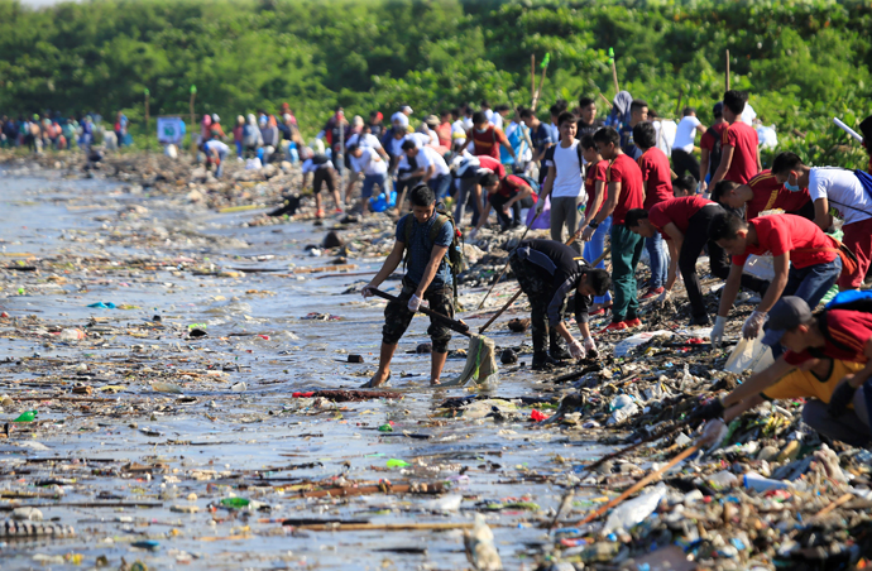Biju Dharmapalan
From minuscule organisms to the largest animal ever to have lived, from the colourless to the shimmering, from the frozen to the boiling, and from the bright light to the mysterious blackness of the deepest sections of the globe, the seas have everything. The oceans are crucial to the health of the planet’s ecology because they support a wide variety of marine species and provide essential resources like food and water. More than 40 percent of the global population resides within 100 kilometres of a coastline, as reported by FAO. Better ocean resource management is essential for guaranteeing global food security.
As time goes on, our oceans are threatened by a variety of human activities. Overfishing has led to a decline in fish populations, threatening food security and altering marine food webs. Coastal areas are especially susceptible to pollution because much of it enters the oceans from land. In addition, plastics pose a unique set of challenges due to the emergence of vast areas of floating trash in the world’s oceans. Some marine animals are struggling to survive due to the effects of climate change and related factors like ocean acidification. Coral reefs, seagrass beds, and mangroves are only some of the coastal marine habitats that are being destroyed or degraded by human activity.
The well-being of whole humanity and life on this planet depends on the condition of the oceans.
India is proud to have a vast coastline of more than 7,500. Many coastal regions of the country are major tourist destinations bringing revenue to the country’s economy and the common person. India’s strength in science and technology is supporting and catalyzing the exploration of oceans for sustainable use of its resources. The Blue Economy is an important Indian scientific mission with deep-sea fishing, marine aquaculture, seabed mining and minerals, ocean energy as some of its major verticals. Blue economy is ready to propel the nation into a higher growth trajectory.
In spite of the enormous potential of oceans, people often forget the fact that a healthy sea is needed for our survival. They act as a food resource for the future and also help in maintaining the ecological balance. People who visit beaches rarely show concern for protecting the serenity of the oceans. They dispose of waste, especially plastics, in the oceans. Apart from these, wastes are also dumped by industries and deep sea ships.
Marine pollution is an area of concern not only for us but for the whole world. The “International Coastal Cleanup Day” is celebrated globally on the third Saturday of September, every year. This year on 17th September 2022, the Government of India, along with other voluntary organizations, and the local society will run a cleanliness campaign “Swachh Sagar, Surakshit Sagar/ Clean Coast, Safe Sea” along India’s entire coastline. This campaign will be led by the Ministry of Earth Sciences, and supported by several other Government and Non-Government agencies like the Ministry of Environment Forest and Climate Change, National Service Scheme, Indian Coast Guard, National Disaster Management Authority, Indian Institue of Public Administration, Ministry of Education, Ministry of Shipping, Ports and Waterways, Ministry of Jal Shakti, NCC, Ministry of Fisheries, Ministry of Science and Technology, Department of Space and Atomic Energy among others. This year’s event also coincides with the celebrations of Azadi Ka Amrit Mahotsav on the 75th year of the India’s independence; The coastal clean-up drive will be carried out on 75 beaches across the country with 75 volunteers for every kilometre of the coastline.
As part of the Coastal Cleanup Campaign, a target has been set to remove 1500 tonnes of garbage from the country’s beaches. The campaign has received an overwhelming response with the participation of many eminent personalities, celebrities, and students from across the length and breadth of the country. The logo for this mega campaign is Vasuki, dedicated to the youth and school students who are interested in the campaign.
The campaign started on July 5th, 2022 and has three strategic underlying goals, which include, Consume Responsibly, Segregate Waste at Home, and Dispose Responsibly. The campaign will conclude with the largest beach cleaning event on 17th September, covering 75 beaches across India’s 7,500+Km coastline. A mobile app, “Eco Mitram”, has also been launched to spread awareness about the campaign and citizen engagement.
The Vigyan Prasar, an autonomous institution under the Department of science and technology, has been assigned to carry out various outreach activities across the country. Various seminars, press interactions, various competitions for students, and screening of science movies have been planned at 75 designated places in the country. Apart from this, beach cleaning activities will also be carried out with various organizations designated by the Government.
It is the first-of-its-kind and longest-running coastal clean-up campaign in the world, with the highest number of people participating. This mega campaign is expected to bring attitudinal changes in our community toward preserving and conserving our marine resources. Humans have destroyed every part of the terrestrial ecosystem they have invaded. The future of our species on this blue planet depends solely on how we take care of our oceans and their surroundings. Let’s join this unique campaign and save our planet.
(The author is a science communicator and columnist)


